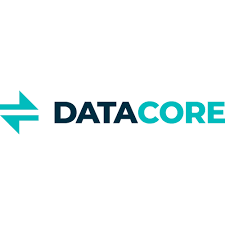


The DCSA curriculum is intended for technical pre-sales & post-sales professionals seeking greater knowledge on how to architect and design DataCore solutions.
Our future is here and it relies on data. Predictive policing, medical robots, smart homes and cities, artificial intelligences - we can all think about how any of those could go wrong. Discover how we can build a future where they are done right.
How much would you like your smart home to know about you? Has your data been harvested and used for political advertising on social media? Would you be happy to be profiled by a predictive policing AI?
As we create more data-driven technologies, those issues become increasingly urgent. We must begin to ask not only ‘what can we do?’, but also ‘what should we do?’ How should we design new technologies to make sure they are used for good, not bad purposes?
The ‘good’, the ‘bad’, and the ‘should’ are a domain of ethics, and a basis for other important concepts such as justice, fairness, rights, respect. They further inform the law and what is legal. Finally, they are at the roots of an extremely important currency in the modern economy: trust.
This story-driven course is taught by the leading experts in data science, AI, information law, science and technology studies, and responsible research and innovation, and informed by case studies supplied by the digital business frontrunners and tech companies. We will look at real-world controversies and ethical challenges to introduce and critically discuss the social, political, legal and ethical issues surrounding data-driven innovation, including those posed by big data, AI systems, and machine learning systems. We will drill down into case studies, structured around core concerns being raised by society, governments and industry, such as bias, fairness, rights, data re-use, data protection and data privacy, discrimination, transparency and accountability. Throughout the course, we will emphasise the importance of being mindful of the realities and complexities of making ethical decisions in a landscape of competing interests.
We will engage with data-based contexts such as facial recognition, predictive policing, medical screening, smart homes and cities, banking, and AI, to explore their social implications and the tools required to minimise harm, promote fairness, and safeguard and increase human autonomy and well-being. We address cutting edge issues being grappled with by practitioners and new approaches emerging in industry and offer the opportunity for participants to develop and feedback solutions.
DataCore presents a five-day, SANsymphony Administration to DCIE Course. This course is designed to provide SAN storage administrators, partners and system builders with the tools, knowledge and practical experience to successfully plan, implement and manage a SAN environment in which DataCore software is used for storage management, virtualization and high availability.
We are glad to invite Partners to our DataCore Certified Sales Professional and DataCore Certified Solutions Architect training. It will be one day long and this time it will be free of charge. We plan to hold it, for all Baltics partners.
Popular courses are DataCore SANsymphony Administration and DCIE Development V10 SSVDCIE10
If you need training for 3 or more people, you should ask us about onsite training. Putting aside the obvious location benefit, content can be customised to better meet your business objectives and more can be covered than in a public classroom. It's a cost effective option. One on one training can be delivered too, at reasonable rates.
Submit an enquiry from any page on this site, and let us know you are interested in the requirements box, or simply mention it when we contact you.
All $ prices are in USD unless it’s a NZ or AU date
SPVC = Self Paced Virtual Class
LVC = Live Virtual Class
Our clients have included prestigious national organisations such as Oxford University Press, multi-national private corporations such as JP Morgan and HSBC, as well as public sector institutions such as the Department of Defence and the Department of Health.












